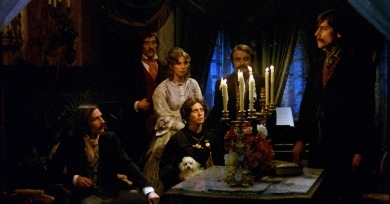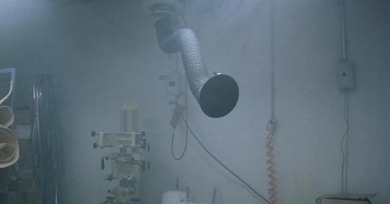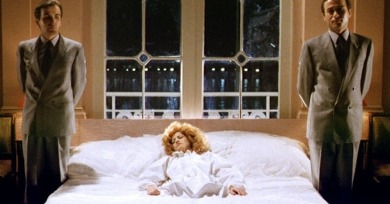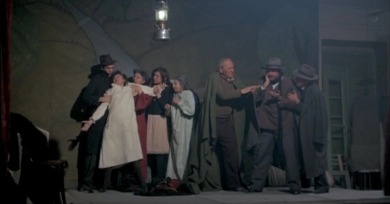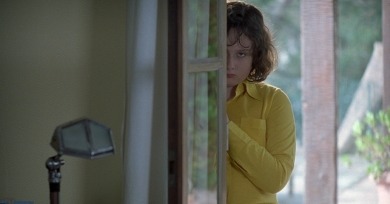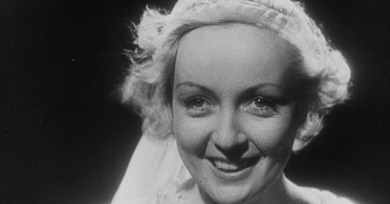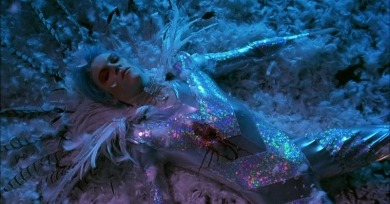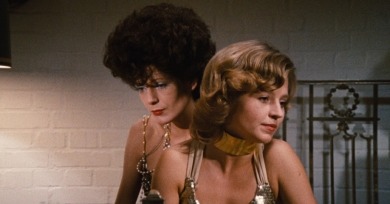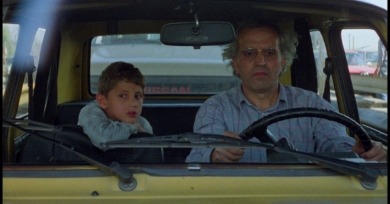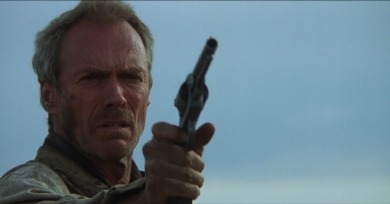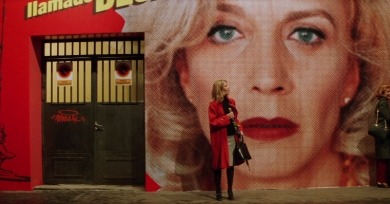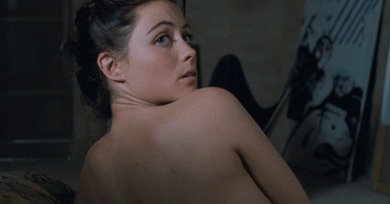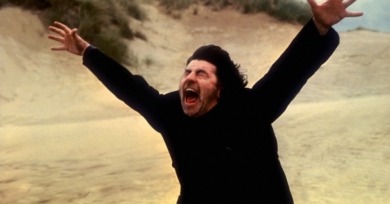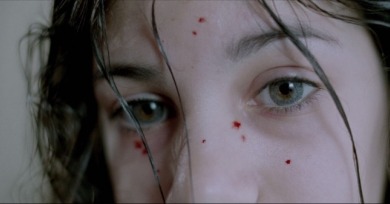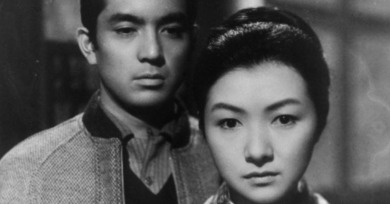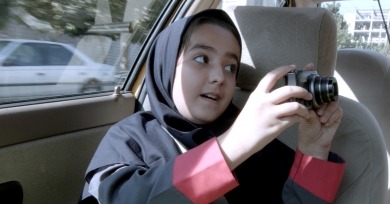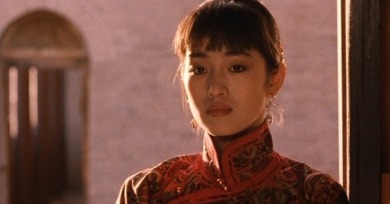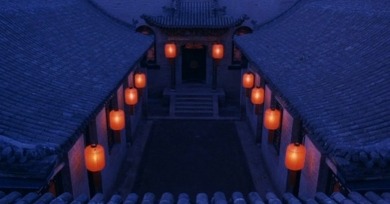Great Beyond
As we write and rewrite the ongoing history of cinema, missing the great films and often paying far too much attention to the undeserving, and always, always uncovering more and more work worth writing and thinking about, we should remember: question the rubrics and heuristics, the received and accepted wisdom.
Four minutes into the film I can already appreciate the spaciousness and quasi-documentary simplicity that would have endeared my head-in-the-clouds 16-year-old self. Ambient sounds, dreamy transitions, and preference for human faces over narrative momentum lend Syndromes a remarkable directness of expression.
The reliance of outside texts and reference points is not only artlessly overt—it can strike a viewer as bound to a particular moment in film history, when cinema argued for itself on the basis of its having mastered a particular syllabus.
I was at an age where I was voraciously curious about movies of all kinds and hungrily filling gaps in my knowledge. Yet the first time I read about the Greek epic, it wasn’t in service of my budding cinephilia. It was in service of my endless curiosity about something else: the life of my grandfather.
Breillat’s cinema enacts the extremes to which women are willing to go in their efforts to wrest control of themselves and their bodies from the patriarchal systems that define them. The result is often a perverse, reactionary lashing out.
Some days you’re Jean, finding respite and comfort in quiet understanding between two souls. Some days you envy Juliette’s impulsiveness, recognizing her familiar attempt to recapture the pierce of Cupid’s arrow. The tender and charming realism of their young marriage is powerful, to be sure—it may bend, even break, but isn’t beyond repair.
It was a film for peers of mine whose burgeoning selfhoods hinged on things more consequential than cinephilia. But watching the film now, I am newly surprised by how grounded I feel in the everyday world it transcends.
The film recontextualized my experience with all the French cinema that I had seen before, expanding definitions of beauty and humor and what it is to capture an experience, real or imagined, unapologetically.
If the great dilemma of Fassbinder’s generation was how to connect to a tradition that had been, for a time, variously distorted and co-opted by National Socialism, Petra von Kant, with its connections to American Hollywood cinema, seemed to me like an auspicious reinvention.
In the cartography of American academia, I was on the outskirts. But Iranian cinema felt like a part of my world, and to see it treated with the seriousness and reverence usually reserved for the Western canon affirmed me profoundly.
The American West is a series of stories of belief and opportunity, drenched in violence. John Wayne said westerns were the only purely American art form. I sometimes think that maybe the movies themselves—the simple telling of stories on film for mass entertainment—are a purely American art form.
It isn’t a stretch of the imagination to imagine my grandmother’s threat coming from the mouth of any one of Almodóvar’s fierce materfamilias, whose protectiveness is all but instinctual, their brashness an armor against a world inclined to disrespect and devalue them.
The sex in Y tu mamá también is randy, fluid, and enticing; it’s also sloppy, artless, and shot through with complex emotional undertones. Under the camera’s watchful eye, the trio bares all in ways they both longed for and hardly anticipated.
Perhaps the most radiant film I have ever seen . . . Its ebullience rests largely in its synthesis and transformation of those most obvious of French cinematic stereotypes: an obsession with love and sensuality, extended conversations about overtly philosophical subjects.
During childhood, I also had the opportunity to experience a very different cinema: global art films, broadcast in a weekly program on Iranian national TV. In comparison to classical cinema, those films were serious, disorienting, and bleak . . . they encouraged me to crave meaning by looking inside, by criticizing my own emotions.
The Otherness it uncritically invokes touches on postcolonial realities and racial demonizing at a moment when England was embroiled in a thicket of social and economic problems and anti-immigrant violence. But its dark vision of the English soul as inherently corrupted and afflicted by madness was hardly a comforting takeaway.
Seriousness is often likened to pretentiousness, which is often a sort of veiled criticism, at least when talking about movies. It qualifies everything a given film isn’t (fun, humorous, irreverent), while also overstating what the movie actually does or tries to be.
Naruse’s gracefully unobtrusive style is attentive to mundane details: table manners, tedious routines of housework or office culture. There are small pleasures to be found, but he also shows daily life as a process of erosion or weathering.
While I experienced this visceral unfolding across the political landscape of Ireland in the coming years, was in the midst of my delving into Panahi’s post-ban films, exploring how the particular censorship conditions under which the director lives give shape to his storytelling as a distinct mode of resistance.
Watching it again today, I realize that Zhang Yimou’s film might have worked particularly well for an adolescent viewer because it functions on traditional fairy tale logic.
Maybe rigorous analysis needs always to be leavened with a certain degree of humility. This seems particularly important when we look at films from unfamiliar places and wish to address ideas of culture and place.
